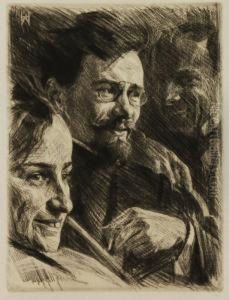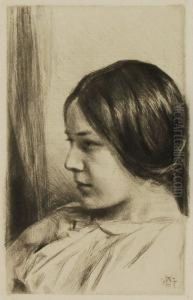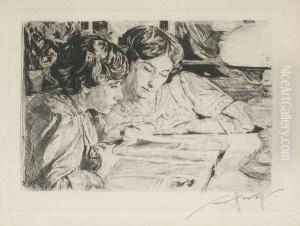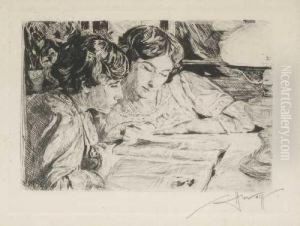Heinrich Wolff Paintings
Heinrich Wolff was a German artist known for his contributions to painting and printmaking during the late 19th and early 20th centuries. Born in 1875 in Germany, Wolff emerged as a significant figure in the German art scene, particularly within the movements that preceded and included Expressionism. His work, however, does not fit neatly into one stylistic category, as he explored various styles and subjects throughout his career.
Wolff's artistic journey began at a relatively young age, showing a keen interest in the arts and quickly developing his skills. He pursued formal art education in Germany, studying at some of the most prestigious art academies of the time. These formative years were crucial in shaping his later work, which often reflected a deep understanding of both traditional and contemporary art forms.
Throughout his career, Heinrich Wolff was particularly noted for his landscapes and portraits, which captured both the beauty and complexity of human and natural forms. His landscapes often depicted German countryside scenes, imbued with a sense of romanticism yet marked by a distinctive personal style that set his work apart from his contemporaries. In his portraits, Wolff demonstrated an exceptional ability to capture the essence of his subjects, displaying a profound understanding of human emotion and psychology.
Despite his talent and contribution to the art world, Wolff's work was not as widely recognized during his lifetime as that of some of his contemporaries. The tumultuous political and social climate of Germany during his lifetime, particularly the rise of the Nazi regime, had a profound impact on the arts, and many artists like Wolff found it challenging to navigate this environment. Nevertheless, his work has gained more recognition posthumously, with art historians and collectors increasingly appreciating his unique approach to painting and printmaking.
Heinrich Wolff's legacy is that of a skilled and thoughtful artist who managed to capture the nuances of his time while maintaining a unique artistic voice. His passing in 1940 marked the end of a career that, though not as celebrated as some of his peers during his lifetime, has come to be appreciated for its contributions to the development of modern art in Germany. Today, Wolff's works are held in several art collections and museums, serving as a testament to his skill and vision.



